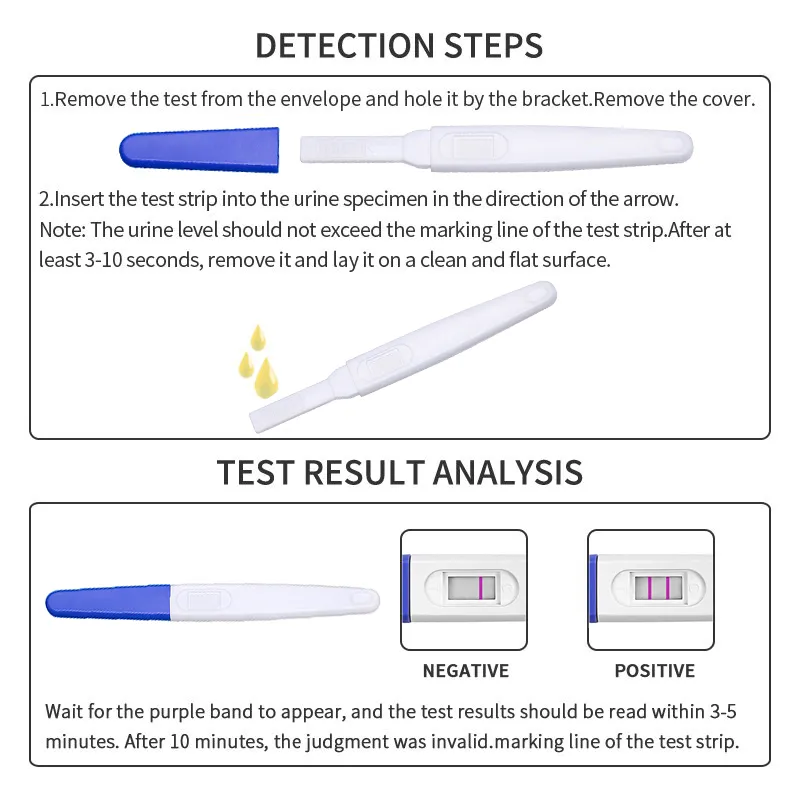Sep . 29, 2024 23:46 Back to list
HCV Test Manufacturers and Their Impact on Hepatitis C Diagnosis and Treatment
The Evolving Landscape of HCV Test Manufacturers
Hepatitis C virus (HCV) is a significant global health challenge. It affects millions of people worldwide, leading to chronic liver disease, cirrhosis, and even liver cancer. Early detection and effective treatment are crucial in managing the disease, which underscores the critical role of HCV testing. This article explores the landscape of HCV test manufacturers, the types of tests available, and the innovations driving the industry forward.
Understanding HCV Testing
HCV testing typically involves serological and molecular methods. Serological tests, primarily antibody tests, determine if a person has been exposed to the virus by detecting antibodies in the blood. If these tests are positive, molecular tests, such as Polymerase Chain Reaction (PCR), are performed to confirm active infection and monitor viral load.
Key Players in HCV Testing
The market for HCV testing is populated by various manufacturers, each contributing to advancements in diagnostic technology
. Major players include1. Abbott Laboratories A leader in the field, Abbott offers a range of HCV tests, including the ARCHITECT Anti-HCV and RealTime HCV assays. Their products are known for reliability and accuracy, making them a popular choice among healthcare providers.
2. Roche Diagnostics Roche has been instrumental in HCV testing innovation, providing tests such as the Elecsys Anti-HCV and Cobas HCV tests. Their focus is on enhancing sensitivity and specificity, which has raised the standard for HCV diagnostics.
3. Hologic With a strong emphasis on women’s health, Hologic also offers HCV testing solutions. Their Aptima HCV assay is notable for its ability to detect the virus during early stages of infection, enabling timely intervention.
4. Quest Diagnostics As a leading laboratory service provider, Quest offers a broad range of testing services, including HCV antibody and viral load testing. Their comprehensive testing options cater to both individual and large-scale screening needs.
5. Merck In addition to producing pharmaceutical treatments for HCV, Merck also engages in the development of diagnostic tests, ensuring they remain at the forefront of both therapeutic and diagnostic advancements.
hcv test manufacturers

Innovations in HCV Testing
The HCV testing landscape is undergoing significant transformation spurred by technological advancements.
1. Rapid Testing One of the most notable innovations is the development of rapid diagnostic tests (RDTs), which provide results within minutes. These tests are essential in areas with limited access to healthcare, as they enable swift decision-making regarding treatment.
2. Point-of-Care Testing Manufacturers are increasingly focusing on point-of-care (POC) testing solutions. These tests are designed for use in various settings, including clinics and community health centers, allowing for immediate screening and diagnosis. With the rise of telehealth, POC tests play a vital role in expanding access to HCV testing.
3. Integration with Digital Health The integration of diagnostic tools with digital health solutions is gaining traction. Mobile health applications enable healthcare providers to track testing and treatment outcomes, enhancing patient management and streamlining healthcare processes.
4. Personalized Medicine Advancements in genomics and biomarker research are paving the way for personalized medicine approaches in HCV treatment. Manufacturers are investing in tests that can identify which patients are likely to respond best to specific treatments, thereby improving therapeutic outcomes.
Challenges and Future Directions
While the advancements in HCV testing are promising, challenges remain. Stigma associated with HCV, along with varying levels of healthcare access worldwide, complicate testing efforts. Moreover, the high cost of some diagnostic tests can be a barrier for widespread implementation, particularly in low-resource settings.
Looking ahead, collaboration between manufacturers, healthcare providers, and governmental organizations is crucial. Efforts must focus on expanding access to testing, improving education about HCV, and investing in research to develop even more effective and affordable diagnostic tools.
Conclusion
The landscape of HCV test manufacturers is dynamic, characterized by rapid technological advancements and a commitment to improving patient outcomes. As the industry evolves, it is essential for stakeholders to work together to overcome existing challenges and ensure that testing options are accessible and effective for everyone affected by Hepatitis C. With continued innovation and collaboration, there is hope for better management of this disease and, ultimately, a reduction in its global burden.
-
Dengue NS1 Rapid Diagnostic Test Kit
NewsMar.07,2025
-
Dengue NS1 Rapid Diagnostic Test Kit
NewsMar.07,2025
-
Dengue NS1 Rapid Diagnostic Test Kit
NewsMar.07,2025
-
Transferrin Rapid Test Cassette Tumor Marker TF Card
NewsMar.07,2025
-
Malaria Pf Pan Rapid Diagnostic Test Kit
NewsMar.07,2025
-
malaria pf / pan ag rapid test
NewsMar.07,2025

